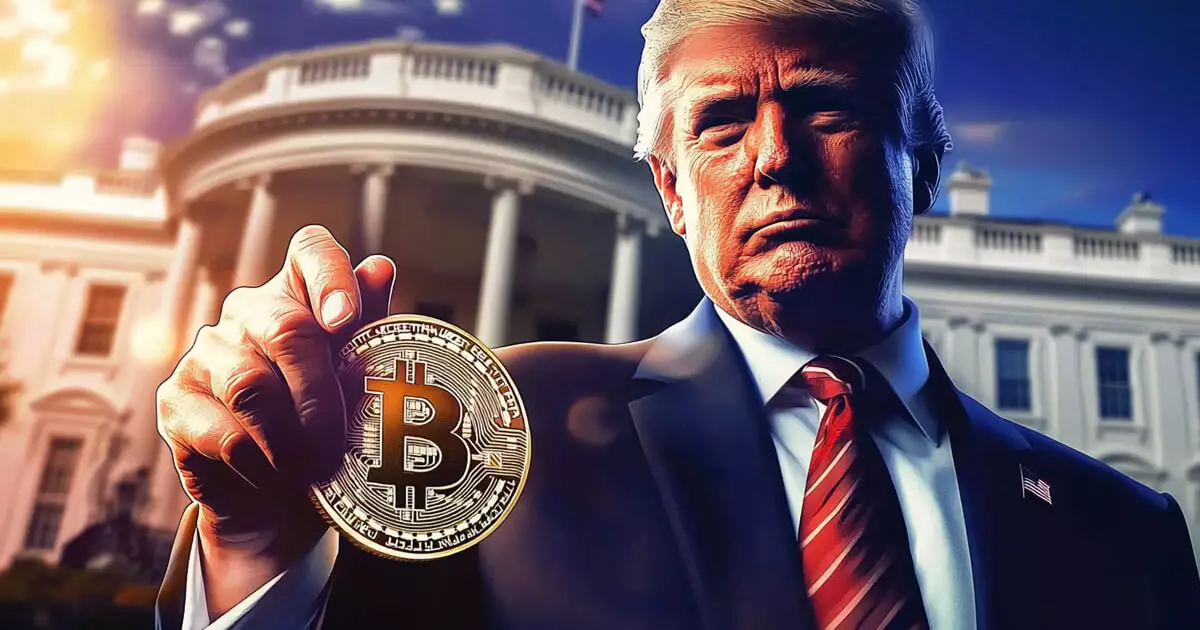The cryptocurrency sector, once regarded as a speculative curiosity, has blossomed into a significant player in the global economy, boasting a market valuation around $3 trillion. As digital assets continue to gain traction, governments are increasingly recognizing the necessity for cohesive regulatory frameworks. Against this backdrop, a proposal for a dedicated “crypto czar” within the White House has surfaced, with former Commodity Futures Trading Commission (CFTC) Chair Chris Giancarlo, popularly dubbed “Crypto Dad,” emerging as a prominent candidate for this role.
Establishing a crypto czar reflects a commitment to not only regulate but also nurture the burgeoning digital asset market. The Trump administration’s anticipated move aims to shift the narrative surrounding cryptocurrency guidance away from a strictly enforcement-led approach, a strategy that has invited criticism as stifling innovation. The czar’s responsibilities would encompass various facets of crypto oversight, from framing regulatory policies to addressing the complexities of stablecoin management and fostering the growth of U.S. crypto enterprises.
Giancarlo’s prior experience as the CFTC head, where he oversaw pivotal developments such as the introduction of bitcoin futures, positions him uniquely to spearhead this initiative. His advisory work with blockchain advocacy groups and leadership of the Digital Dollar Project underscores his commitment to exploring digital currencies’ potential while maintaining a critical stance against the establishment of a federal central bank digital currency (CBDC). This principle resonates with the broader agendas of regulated innovation while simultaneously reflecting a skepticism of overreach that has characterized some government approaches.
The potential endorsement of Giancarlo for the crypto czar role has garnered considerable support from industry leaders. Notable figures such as Coinbase CEO Brian Armstrong and Ripple’s Brad Garlinghouse have expressed optimism regarding Giancarlo’s expertise and commitment to fostering a regulatory environment conducive to innovation. However, it is important to note that this proposed position is not without its detractors. Some advisers within the Trump administration have raised concerns about the introduction of new bureaucratic roles, which they argue could contradict the former president’s promise to reduce governmental red tape. This dynamic illustrates a broader tension between facilitating innovation and maintaining regulatory efficacy.
If the crypto czar role is officially implemented, the ramifications could be transformative for U.S. digital asset policy. Not only would it signal a nuanced approach to the regulation of cryptocurrencies, but it could also lay the groundwork for long-term industry collaboration with government agencies. In an age where the technological landscape is rapidly evolving, Giancarlo’s potential leadership could offer much-needed clarity, helping to bridge the gap between traditional finance and the nascent crypto world. Ultimately, this initiative stands as a barometer for the U.S.’s willingness to embrace the future of financial technology, balancing regulation with the imperative of innovation.
Chris Giancarlo’s candidacy for the crypto czar position highlights a pivotal moment in the intersection of government and technology. As debates surrounding regulatory clarity and innovation continue to evolve, the importance of a well-informed, pragmatic approach becomes ever more critical. While the initiative faces both enthusiastic support and cautionary skepticism, one thing remains clear: the future of crypto policy is set on a transformative path that could redefine how digital assets are integrated within the financial ecosystem of the United States.

